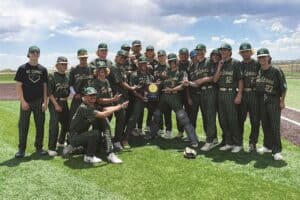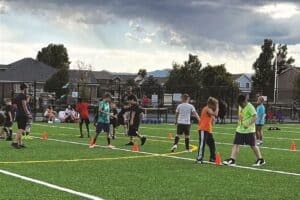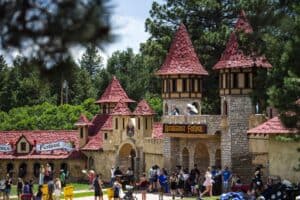On July 4, the United States celebrates 241 years of freedom. The 13 colonies signed the Declaration of Independence in 1776, but went on to battle the British army for another five years. This was the first of many wars Americans would fight to preserve freedom at home and across the world.Millions have served and fought in the U.S. Armed Forces, and not everyone came home in one piece. The overt wounds of war are evidenced by lost limbs and those who gave their last measure. The invisible wounds of war are equally devastating. They have been described by many different names: shell shock, war strain, combat exhaustion, battle fatigue, and currently PTSD (post-traumatic stress disorder).Deployments to combat zones are intense each day; the personal stakes are exorbitant, and the risk of death is at every turn. Service men and women learn to operate at an incredibly high level of vigilance, focus and tension to accomplish their daily missions. According to Aspen Pointe Behavioral Health in Colorado Springs, Colorado, 20 percent or 300,000 of the veterans who have served in Iraq and Afghanistan suffer from a spectrum of trauma disorders and related depression.PTSD is a term used quite frequently in print and conversation, but not well understood. Per the National Institute of Mental Health, the human body responds to a threat by going into ìflight or fightî mode during a traumatic experience. It releases stress hormones, like adrenaline and norepinephrine, to give a burst of energy. The heart beats faster. The brain also puts some of its normal tasks, such as filing short-term memories, on pause. PTSD causes the brain to get stuck in danger mode. Even after danger subsides, the brain stays on high alert. The body continues to send out stress signals, which lead to PTSD symptoms such as disturbing flashbacks, trouble sleeping, emotional numbness, angry outbursts and feelings of guilt. Many sufferers avoid things that remind them of the event. PTSD interferes with life, making it harder to trust, communicate and solve problems; which can lead to problems in relationships with friends, family and coworkers. It also affects physical health.There are many resources available to combat veterans suffering from a spectrum of trauma related symptoms. One common theme runs through the countless testimony of veterans who have sought help: They could not do it alone or run from the demons inside. To readjust to post-deployment life, the veteran and the family members must acknowledge there are emotional and physical changes in their loved one. They must desire to seek help. Assistance comes in the form of individual, group and family therapy and the devotion of service animals.The Veterans Administration addresses PTSD on its website. There is a thorough description of recommended therapies and information on VA medical centers in the United States to help the veteran in need. They suggest the veteran seek ìevidence-basedî medication and therapies such as cognitive behavioral therapy (talk therapy); cognitive processing therapy (managing the emotions from distressing thoughts); prolonged exposure therapy (coping techniques for the distress from memories) therapy; and Eye Movement Desensitization and Reprocessing therapy (emulate rapid eye movement sleep brain activity, allowing the brain to process the traumatic events).Seeking help is the first step of a recovery process. The Colorado Springs Vet Center at 602 South Nevada Ave, can enable the veteranís journey to healing. Austin Wilmarth, the Colorado Springs Vet Center outreach specialist said, ìThe entire staff consists of the director, five counselors, outreach specialist and office manager. We are 100 percent veteran.ìEach one of us has served in either the Air Force, Army, or Navy; and most all have combat experience from Bosnia through Iraq and Afghanistan.îVeterans seeking assistance will be met by another veteran who can relate to their experiences and help them begin the healing process.The Vet Center counseling services are free and focus on post-combat readjustment to civilian life. Veterans who have served in combat operations, experienced military sexual trauma, served as an Unmanned Aerial Vehicle crew, first responders and/or served in Mortuary Affairs receive priority attention. Austin said, ìNo one ó active duty or veteran ó is ever turned away when seeking assistance. We can have, on average, up to 50 walk-ins per month; and currently assist over 300 active clients.î Vet Center counselors guide the adjustment through talk therapy during individual and group sessions, outdoor recreation and will soon offer EMDR. Taking care of a veteranís family is equally important and essential. Counselors at the Vet Center offer additional services such as bereavement counseling for surviving family members and close friends. Family and marriage counseling is provided by a counselor with Special Forces experience.ìThe real selling points of the Vet Center are the free services, fellow combat veterans who can relate and understand and the key concept of confidentiality,î Austin said. ìUnless there is concern for personal safety, the assistance and services provided at the Vet Center remain local. No individual or organization within the Veterans Administration or Department of Defense will know a veteran received help, if there is concern about maintaining employment or security clearances.îThe VA also sponsors a website called Make the Connection to ìconnectî veterans with other veterans and family members who have shared combat and homecoming experiences. The site also provides a locator for local veteran readjustment resources, programs and assistance. In one video on the site, Mike, an eight-year marine and military policeman with two combat tours in Iraq said, ìJust because you leave a war zone doesnít mean that your war is over. Itís not. Itís tough for a Marine to admit, but I was anxious about asking for help. It was the best thing I ever did. Itís not just for me and my family, but I feel I owe it to my fellow Marines to get my stuff squared away. I owe it to those who didnít come home at all.î







